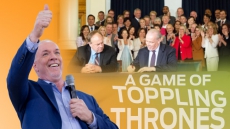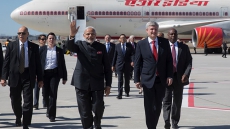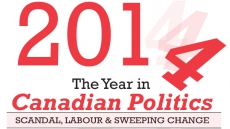Will the proposed tax reform take away an unfair advantage or stifle the success of small business?
It’s been said there are only two things certain in this world and taxes are one of them. With the certainty of taxes comes inevitable debate and the recent proposed tax reform by the federal government is no exception.
In an attempt to close loopholes allowing wealthy Canadians to avoid higher tax rates, Finance Minister, Bill Morneau, announced the government’s plan to make several changes to the current taxation of private corporations back in mid-July. Touted as a ‘fair’ tax system, the proposal is a three-part plan aiming to limit unfair advantages and save the government over $250 million each year.
The first change intends to eliminate “income sprinkling,” where income is distributed to family members who earn less in order to take advantage of a lower income tax rate.
“While income sprinkling is a common way for many small businesses to reduce their tax, it is often not used in households where both spouses work, or who have minor children or working older children,” explains Chelsea Belyk of Chelsea Belyk, Chartered Professional Accountant. “The rules around salaries also will not change, the change only affects dividends.”
The second proposed reform affects a corporation’s passive investments in stocks or real estate to ensure taxes on such investments inside a company are evaluated the same way as those outside the organization. “The rules will not affect any current investments, so there is no need to sell any investments already held in anticipation of these changes,” notes Belyk.
And, lastly, the government proposal would limit business owners’ ability to convert dividend income into lower-taxed capital gains. “The degree to which this will effect a particular business really depends on how much the business is worth on paper and whether there is an intention to pass the business on to a family member at any point in time,” says Belyk.
While addressing these concerns may be necessary in order to target those who are indeed unfairly taking advantage of loopholes in the tax system, critics are calling foul, saying those who will be most affected aren’t the wealthy majority or those who are cheating the system.
The opposition, and many outspoken Canadians, have strongly disagreed with the Liberal proposal. Many believe the proposed changes will be devastating to small businesses and their families, particularly those in the farming and medical industries.

After a 75 day consultation period and uproar from across the country, the Liberal government announced several adjustments in response to the overwhelmingly negative feedback. The announcements included a pledge to cut the small business tax rate from 10.5% to 9.0% by 2019 as well as an allowance of $50,000 of passive investment income to be sheltered annually before a higher tax rate is imposed. These changes are said to exempt many small businesses from being negatively affected by the proposed reform and will allow owners to continue to put money away for personal leaves and retirement.
So what does this all mean for businesses, both big and small, across the country?
The Liberals believe their proposed changes will allow small businesses to be able to continue their operations while saving for the future with only a small percentage of the wealthiest business being made to pay higher taxes. Farmers and doctors alike seem to disagree; having set up their businesses to adhere to the current rules, many professionals will see a decrease in their cash flow with an increase of thousands of dollars to be due in tax once the new rules take effect – not to mention the offence many are feeling to be unfairly labelled as a tax cheat while working around the clock without taking a salary themselves.
“I believe that the majority of entrepreneurs go into business for a variety of reasons, and the tax benefits are generally a secondary thought,” says Belyk, adding that the effects will greatly vary from business to business.
“Small businesses will need to consider the cash flow implications if they have been taking advantage of income sprinkling or are looking to sell their business to non-arm’s length persons. The business can continue to invest in expanding their operations” explains Belyk, emphasizing the importance of tax planning in order to avoid any negative or surprise repercussions.
“With regards to the personal savings of the owner, for retirement or otherwise, if the corporation holds passive investments immediate action is not necessary as the current holdings will not be effected, but an adept business owner may want to research the best way to invest their personal savings, such as considering withdrawing a salary that maxes out RRSP and TFSA contributions.”
Before the bill is passed, wading through the noise to see what will be accomplished is difficult. Critics still believe the changes, which are likely to happen, continue to complicate the issue and unfortunately only add to the struggles already facing small businesses. The government, on the other hand, maintains their proposal is in the best interest of the middle class. The back and forth between parties has brought about adjustments but will it be enough to appease and encourage small business owners to be successful?




